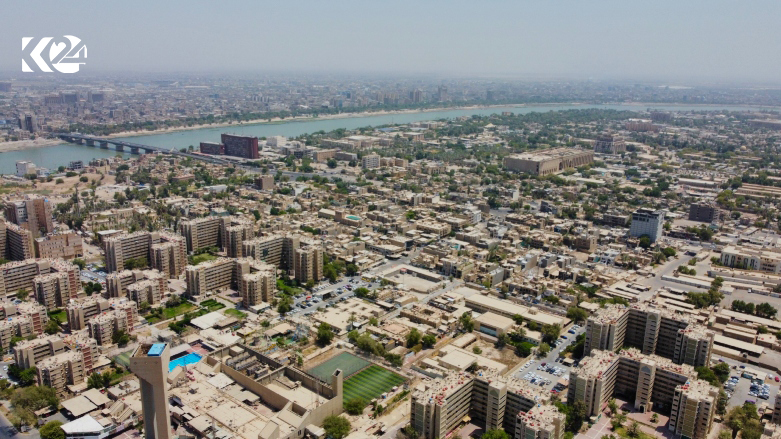Iraq's population is more than 43 million: Iraqi Ministry of Planning

ERBIL (Kurdistan 24) – The Iraqi Ministry of Planning in a statement announced that it is working to conduct a general population census in 2024, and that it is thus trying to create a favorable environment for the process.
The Iraqi High Commission for the General Population Census, chaired by Minister of Planning Muhammad Ali Tamim, will meet in the coming days to discuss preparation for the census next year, the statement added.
Iraq's population is estimated at 43.3 million this year. The country’s population growth is estimated at 2.5 percent by 2023. Regarding gender proportions, 50.5 percent are male and 49.5 percent are female.
The Ministry of Planning also revealed that 50 percent of the Iraqi population lives in Baghdad, Nineveh, Basra, and Dhi Qar provinces. Meanwhile, 70 percent of Iraq's population lives in urban areas, while the other 30 percent lives in rural areas.
The website World Population Review indicates that by 2023 the number of people in Iraq will exceed 45 million.
So far Iraq has conducted eight general population censuses:
1927 General Census recorded a population of 2.9 million people.
1934 General Census recorded a population of 3.2 million people.
1947 General Census recorded a population of 4.8 million people.
1957 General Census recorded a population of 6.5 million people.
1965 General Census recorded a population of 8.3 million people.
1977 General Census recorded a population of 12.5 million people.
1987 General Census recorded a population of 16.3 million people.
1997 General Census, the last census recorded in the country, was conducted in only 15 provinces and it recorded a population of 19.2 million people.
Iraq's last census in 1997 did not include the Kurdistan Region. More recent counts generally estimate population based on statistics provided by the national food ration program, and these counts have often been incomplete in disputed territories such as Kirkuk, Nineveh, and Makhmur.
The lack of reliable statistics has fueled discord between rival populations claiming majorities in various regions of Iraq, most notably in the oil-rich province of Kirkuk, adding to the difficulty of addressing fundamental disagreements.
Earlier this year, the Middle East Research Institute released a report that expects Iraq’s population to reach 75 million by 2050. The report warned that overpopulation will further exacerbate current problems the country faces, like food shortages, water scarcity, unemployment, climate change, and instability in the energy sector.
Read More: Iraq's population is expected to reach 75 million by 2050: MERI
